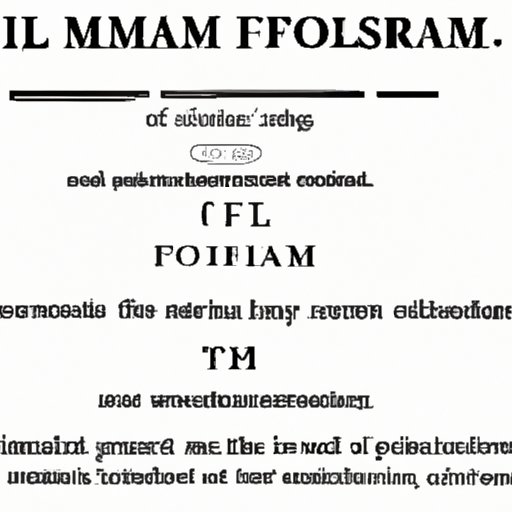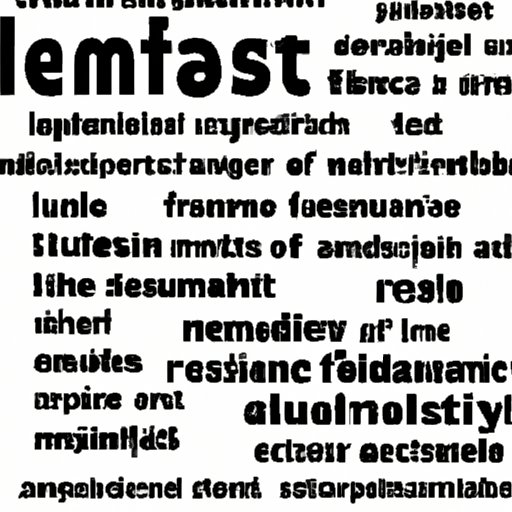Introduction
Formalism is a type of literary criticism that focuses on the structure, style, and language of a work of literature. It is a widely used approach to analyzing literature because it emphasizes the importance of understanding the text itself rather than the author’s intentions or the reader’s interpretation. This article will explore the history of formalism, its influence on modern literature, and how to apply it to literary analysis.

An Overview of Formalism in Literature
Formalism has its roots in Russian formalism, a school of literary theory founded in the early 20th century. It was developed by scholars such as Viktor Shklovsky, Boris Eichenbaum, and Roman Jakobson. The basic premise of Russian formalism was that literature should be studied for its own sake, rather than for the purpose of understanding the author’s intentions or the reader’s interpretation. This approach focused on the structure, style, and language of the text and sought to identify the ways in which these elements worked together to create meaning.
Literary techniques used in formalism include close reading, which involves examining the text closely to uncover patterns and meanings, and structuralism, which looks at the overall structure of the text. Additionally, formalism often looks at the use of symbolism, imagery, and metaphor to understand how they contribute to the meaning of the text. By focusing on the text itself, formalism provides an objective way to analyze literature.

How Formalism Influences Modern Literature
Formalism has had a significant influence on modern literature and literary criticism. Many contemporary works of fiction and poetry make use of formalist techniques, such as exploring the structure and language of the text to create meaning. For example, Toni Morrison’s Beloved uses repetition and parallel structures to emphasize the main themes of the novel. Similarly, Emily Dickinson’s poetry often relies on the use of imagery and metaphors to convey her ideas.
Formalism has also impacted the way modern writers approach their craft. Writers such as Margaret Atwood and Jhumpa Lahiri have used formalist techniques to create powerful works of literature that rely heavily on the structure and language of the text to convey their messages. By looking closely at the text, writers can create works that are nuanced and meaningful.
Examining the Principles of Formalism
When analyzing a work of literature using formalism, there are several key principles to consider. First, it is important to examine the structure of the text, including its plot, characters, setting, and narrative devices. It is also important to look closely at the style and language of the text, including its syntax, diction, and use of figurative language. Finally, it is important to investigate the themes of the text and how they contribute to the overall meaning.

Applying Formalism to Literary Analysis
When applying formalism to literary analysis, it is important to consider the context of the text. This includes understanding the historical and cultural background of the work and the author’s intended audience. Additionally, it is important to make connections between texts to gain a better understanding of the themes and motifs being explored. Finally, it is important to create a thesis statement that summarizes the main points of the analysis.
Conclusion
Formalism is a type of literary criticism that focuses on the structure, style, and language of a work of literature. It has its roots in Russian formalism and has had a significant influence on modern literature. When analyzing literature using formalism, it is important to consider the structure, style, and language of the text, as well as the context of the work and the connections between texts. By understanding the principles of formalism, readers can gain a deeper understanding of the works they are studying.
In conclusion, formalism is a powerful tool for literary analysis. By focusing on the text itself, it allows readers to gain a more objective understanding of the work. By understanding the principles of formalism and applying them to literary analysis, readers can gain a deeper appreciation of the literature they are studying.
(Note: Is this article not meeting your expectations? Do you have knowledge or insights to share? Unlock new opportunities and expand your reach by joining our authors team. Click Registration to join us and share your expertise with our readers.)
